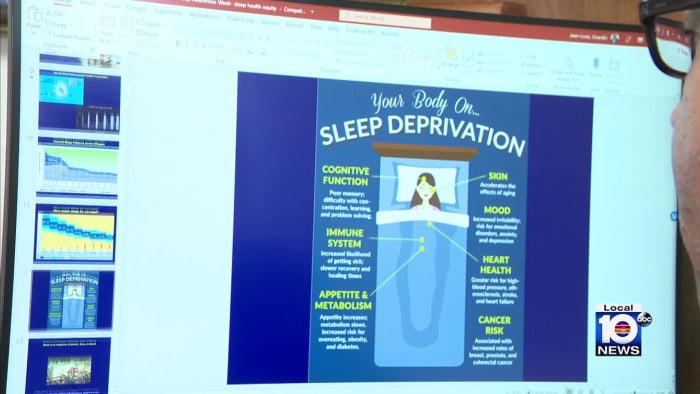University of Miami program focuses on sleep

MIAMI – A special program is underway at the UM Miller School of Medicine focused on better understanding of the human body clock and sleep quality.
Dr. Girardin Jean-Louis recently joined UHealth to direct its new Translational Sleep and Circadian Sciences Program.
He said glitches in the internal body clock can have serious health consequences.
“When we see somebody who has circadian dysregulation the risk of obesity is much higher, high blood pressure, diabetes, hyperlipidemia and now we’re also learning the risk of dementia is much higher simply because the clock is not doing what it’s supposed to do on a regular basis,” Jean-Louis said.
Jean-Louis and his team are developing and testing interventions intended to reduce the risk of health problems related to sleep.
On the subject of sleep, researchers at the University of Minnesota School of Medicine have found that the disruption of a circadian clock gene may be involved in the development of autism spectrum disorder.
Ad
About 50-80 percent of children with ASD have sleep problems, compared to less than 30 percent in the general population.
The causes of sleep problems in ASD are not entirely clear, but a malfunctioning body clock could be the culprit.
And according to a new study, the rate of pre-diabetes is increasingly rapidly in children jumping from 11.6 percent in 1999 to more than 28 percent in 2018.
Pre-diabetes increases the risk of developing type two diabetes as well as heart disease and stroke.
The study did not answer why pre-diabetes is on the rise, but it falls in line with an increase in childhood obesity.
Copyright 2022 by WPLG Local10.com – All rights reserved.


